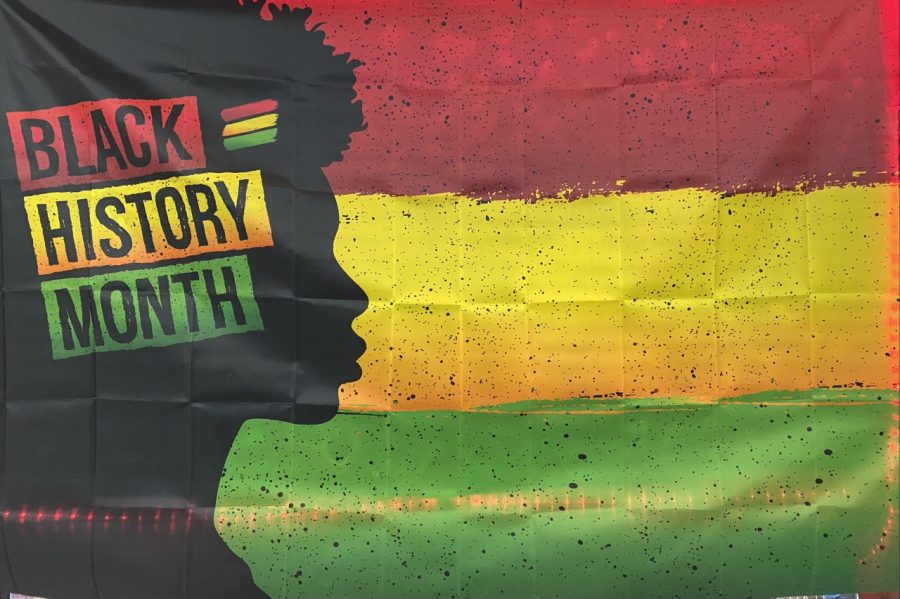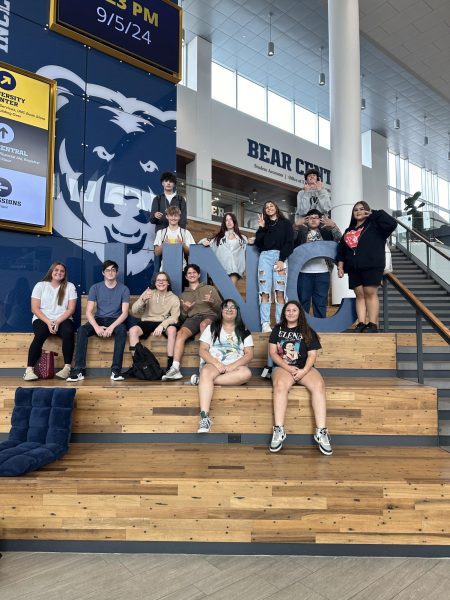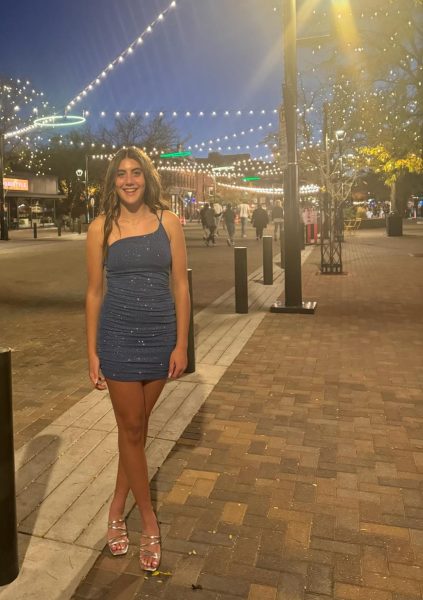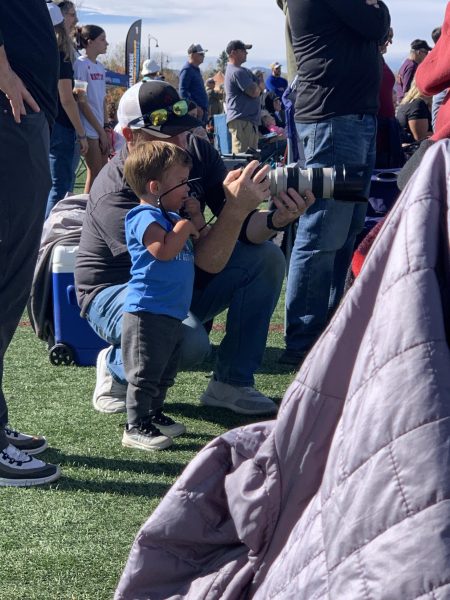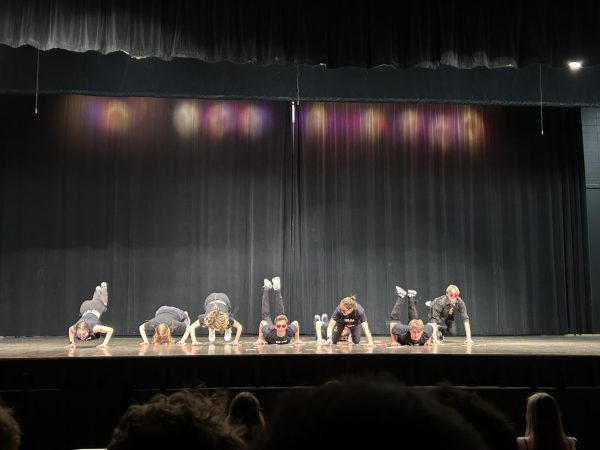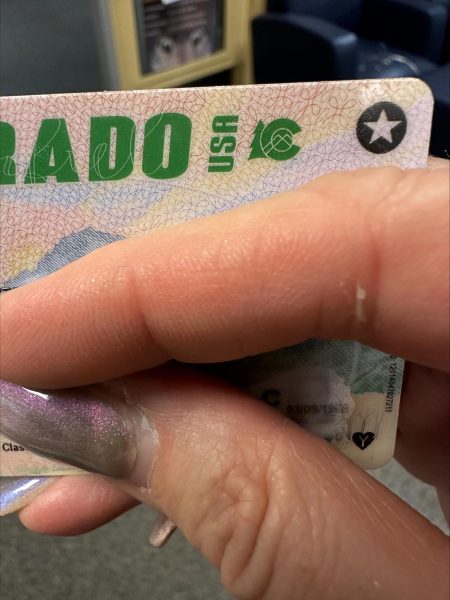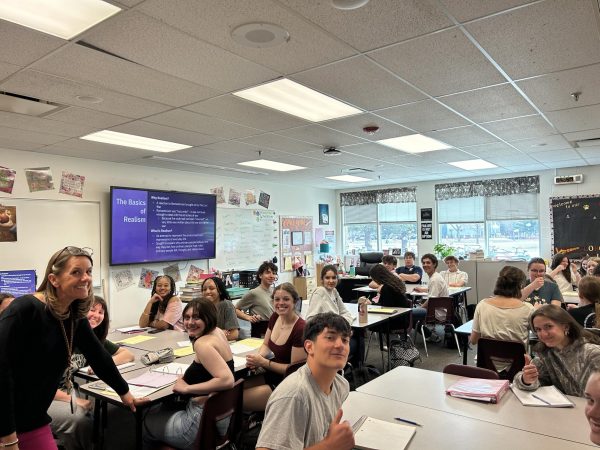Awareness Months Presentations
A Black History Month flag hangs in the Media Center to recognize Black History Month.
Since the beginning of this 2022-2023 school year, presentations have been held in the Media Center during which several speakers have been invited to share their experiences with Rocky students in honor of both LGBTQ+ History Month (October) and Native American Heritage Month (November) and Black History Month (February).
Known for his goal of bringing representation to Rocky, T.O.S.A. Diversity, Equity, and Inclusion specialist Jason Powell organized the presentations.
“He’s very passionate, encouraging, and true to his word,” an anonymous student said of Mr. Powell.
Powell tries to provide an inclusive space for every student. “If you’re having a problem with racism, he will take care of it,” student Ella Dornfest said.
Mr. Powell explained that his goal by organizing these presentations is to, “celebrate the different cultures, because they are important to everything we do.”
As cultural backgrounds play a big role in teenagers’ values, personality, and open-mindedness, it is important to educate students about their own cultures, as well as those they’re not familiar with, since not everyone is able to find that at home.
As one of the speakers of the Black History Month presentation, Steve Joiner, explained to students, “As you guys are living your lives, you may never come in contact with aggression or racism, but what you can do is engage in conversations about race and minorities and find out about other people’s experiences.”
Going to the presentations isn’t mandatory for any specific class, as it is up to teachers to decide if they think the topic of the presentation relates to their class, or if they simply want their students to attend. Students with off periods are encouraged to attend.
When asked about why he chose to invite speakers to these presentations, Mr. Powell answered that, “not everybody is going to encounter people from different cultures and races, so inviting the communities’ speakers allows students to be exposed to different perspectives,” which is important especially for young high school students. By talking about their personal experiences, their struggles as well as their accomplishments, the speakers can connect with students and talk about the way they “found themselves,” Mr. Powell explained.
The presentation held in November was in honor of National Native American Heritage Month. Since 1907, November has been the month dedicated to this community, and this year, Mr. Powell held a presentation to celebrate the indigenous culture.
Around 100 students and staff listened as speaker Sierra Bitsie shared with them the history of Native Americans, including the erasure of their people, the appropriation of their culture, and the lack of representation they suffer from in the media and in the contemporary world. Her goal was to “elevate Indigenous voices.”
The most recent presentation took place in the Media Center on Friday, February 17, to celebrate Black History Month. In the presentation, Mr. Powell and three speakers discussed how important it is to hear other students’ stories. They shared with students their experiences with racism and discrimination, and the way they could overcome it by creating spaces for people to have conversations and share their experiences, as Powell said to, “Find your voice, and speak for yourself and other people.”
“Black history is American history,” speaker Duan Ruff said.
As Mr. Powell repeated several times during each presentation: “Representation matters.”
High school can sometimes be a place where teenagers struggle to find their identities and where they look for representation and validation from others; providing an inclusive space for everyone is important.
“If you walk into a building and feel like you have to hide your identity, then you don’t belong in that building,” Powell said.
These presentations are a way for students to learn more about what their peers experience in the community. Hearing personal stories from other people is how people learn and understand the way that some people are treated for being who they are.
“What you take away from people is going to stay with you for a while,” Mr. Powell stated.
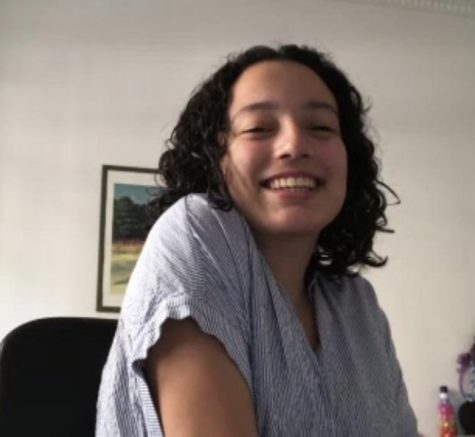
Elea is a French exchange student, attending Rocky Mountain High School as a junior. She's really interested in literature and journalism, and she'll be...
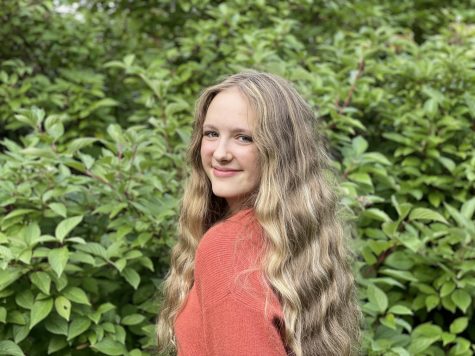
Eva is a second year writer and editor for The Highlighter. She is a Junior this year at Rocky. Outside of school she enjoys hanging out with her friends...


